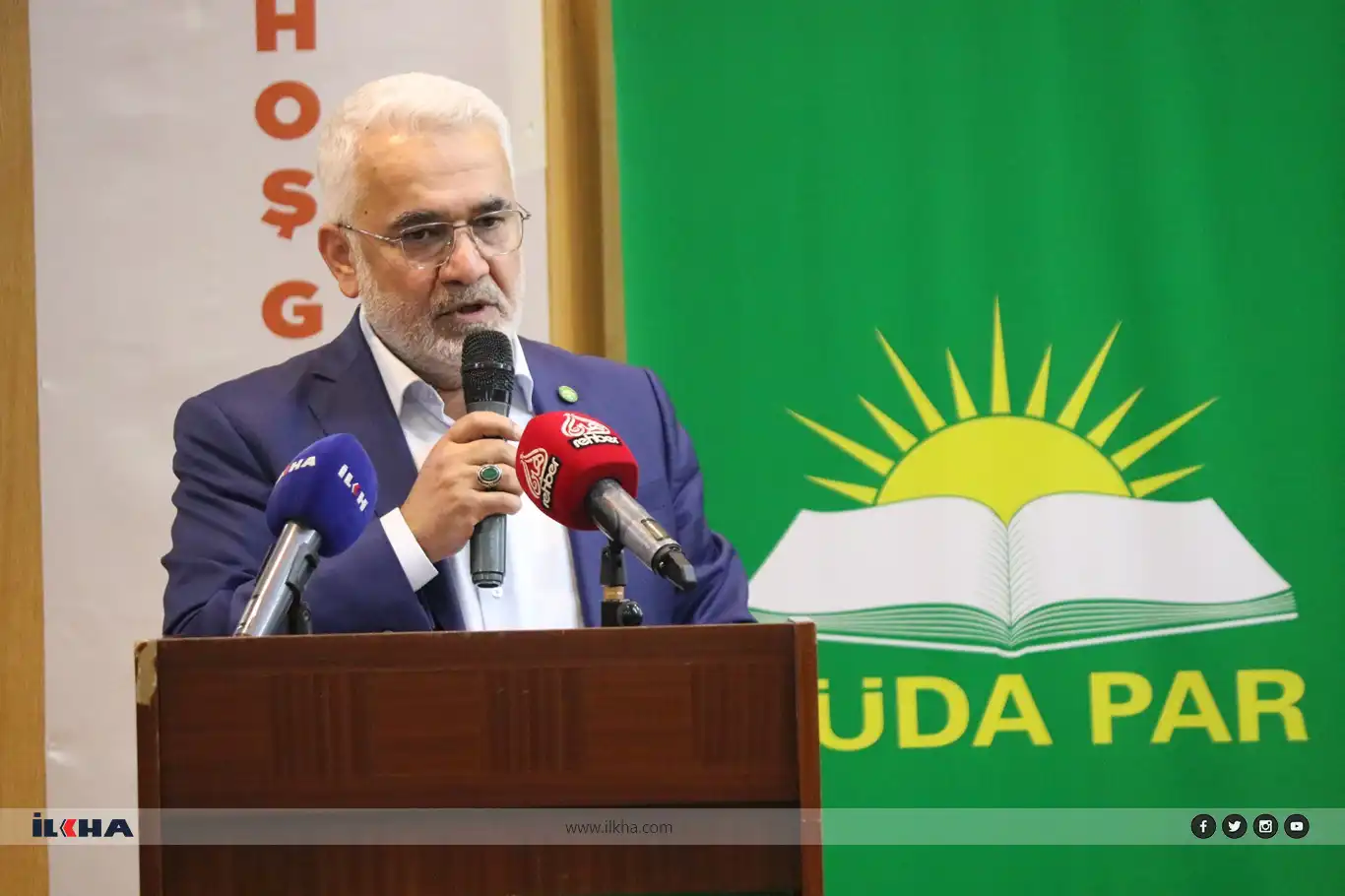HÜDA PAR proposes Qur’an-based mediation model as solution to domestic conflicts


A high-level panel hosted by HÜDA PAR’s Women and Family Presidency drew attention to the deepening crisis facing the family institution in Türkiye and proposed faith-based family mediation as a long-term solution to preserving societal cohesion.
Titled “An Alternative Way in Resolving Domestic Disputes: Family Mediation,” the event was held at Zeytinburnu Wedding Hall and attended by notable figures including HÜDA PAR Chairman Zekeriya Yapıcıoğlu.
The panel gathered academics, religious scholars, and civil society leaders to address the mounting attacks on traditional family values and to present actionable solutions rooted in Islamic civilization and moral principles.
“Family: Our Paradise in This World”
Opening the event with a stirring address, Yapıcıoğlu described the family as “our paradise in this world” and warned of an orchestrated campaign to erode it through ideological and legal pressures. He drew parallels to the warnings voiced by Mehmet Akif Ersoy, the late poet of Turkish independence, who foresaw the destruction of the family unit through cultural invasion.
“More than a hundred years ago, Mehmet Akif Ersoy warned of the collapse of the family as a result of foreign ideologies and internal negligence. Today, we are seeing the consequences of ignoring those warnings,” said Yapıcıoğlu.
He cautioned that unlike institutions such as schools, companies, or governments—which can be rebuilt—once the family collapses, the societal damage is often irreversible.
“The West Has Reached the Heart of Our Homes”
Quoting Aliya Izzetbegović, Yapıcıoğlu remarked: “The West has infiltrated every aspect of our lives. Only the family remains untouched. But even that is now under attack.” He said that family is no longer being portrayed as sacred or necessary, but as dangerous and oppressive—especially toward women.
“Through media, social networks, and foreign-funded campaigns, the family is being vilified,” he noted. “Young people are bombarded with fear-mongering content that discourages them from marriage.”
He accused some feminist movements of encouraging women to view men as enemies, and of turning the natural partnership between husband and wife into a battlefield.
Restoring the Qur’anic Model of Reconciliation
The highlight of the panel was the call to revive family mediation, as advocated by the Holy Qur’an. Yapıcıoğlu explained that Islamic teachings offer a humane, balanced, and spiritually grounded approach to resolving disputes within families.
“The Qur’an recommends the appointment of one arbitrator from each side of the family to mediate when a problem arises. This is not just a suggestion—it’s divine guidance that has been tested over centuries.”
He condemned the habit of escalating minor domestic disputes to courtrooms and police stations. “We’re dragging our spouses through court battles when a few words and mediators from the family could resolve the matter.”
Proposal for an Institutional Mediation Mechanism
Yapıcıoğlu proposed the establishment of an institutional family mediation body, either state-run or community-supported, which would act as an alternative to courts for resolving domestic issues. Until such a system is formally established, NGOs and local family-oriented associations should take the lead.
“A professional mediation center, rooted in our values, could prevent countless families from falling apart. Many divorces happen because of lack of communication or outside pressure—not because of irreconcilable differences.”
He emphasized that family mediation should be implemented not as a Western-imported concept that facilitates divorce, but as a faith-based system of reconciliation that preserves marriages and strengthens families.
Protection of Women Must Go Hand in Hand with Family Preservation
Challenging the dominant narrative that women can only be protected by breaking up families, Yapıcıoğlu declared: “We must protect our women—but not by destroying the family. Justice for women does not require the dismantling of the institution that nurtures love, mercy, and trust.”
He called for a legal and moral overhaul of the system, warning that laws inspired by alien ideologies cannot solve problems rooted in local values and spiritual realities.
Broader Social Implications: From Moral Decline to Societal Collapse
Drawing attention to the broader consequences of family breakdown, Yapıcıoğlu concluded: “When morality, justice, values, and trust disappear, society collapses. And when society collapses, love is replaced by selfishness, justice by the law of the strong, morality by popularity, and trust by suspicion. Family is the last line of defense.”
The panel underscored the need for every segment of society—from political leaders to educators, from religious scholars to parents—to defend and rebuild the family as the cornerstone of Turkish and Islamic civilization.
The event ended with a collective prayer and a renewed call for policymakers to prioritize family in all legislative and cultural strategies, affirming that any revival of the nation must begin with the revival of the family. (ILKHA)
LEGAL WARNING: All rights of the published news, photos and videos are reserved by İlke Haber Ajansı Basın Yayın San. Trade A.Ş. Under no circumstances can all or part of the news, photos and videos be used without a written contract or subscription.
Moderate 3.9 Magnitude Earthquake Strikes Gemlik District in Türkiye’s Bursa ProvinceBursa, Türkiye, July 1, 2025 – A 3.9-magnitude earthquake rattled the Gemlik district of Bursa province in northwestern Türkiye on Tuesday.
The Prophet’s Lovers Foundation (Peygamber Sevdalıları Vakfı) has strongly condemned the so-called satirical magazine Leman for publishing offensive content that disrespects the most honored of creation, Prophet Muhammad (peace and blessings be upon him).
Turkish authorities have detained 120 individuals, including former Izmir Mayor Tunç Soyer and Şenol Aslanoğlu, head of the Izmir Provincial Chapter of the Republican People’s Party (CHP), in a sweeping corruption investigation targeting the Izmir Metropolitan Municipality.
Turkish authorities detained three cartoonists on Monday in response to a highly offensive cartoon published in the weekly magazine Leman.